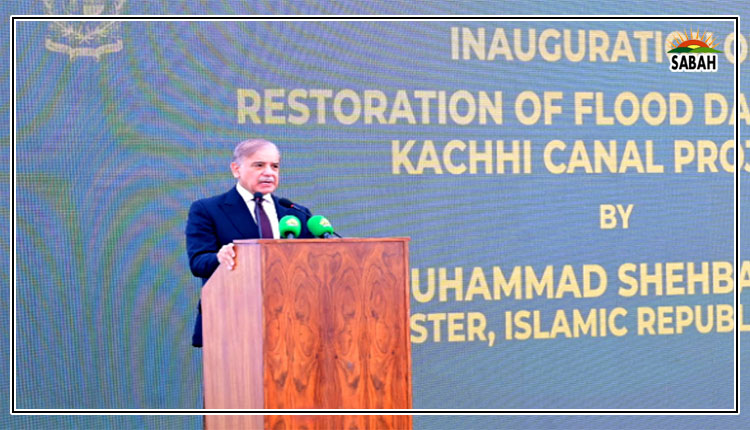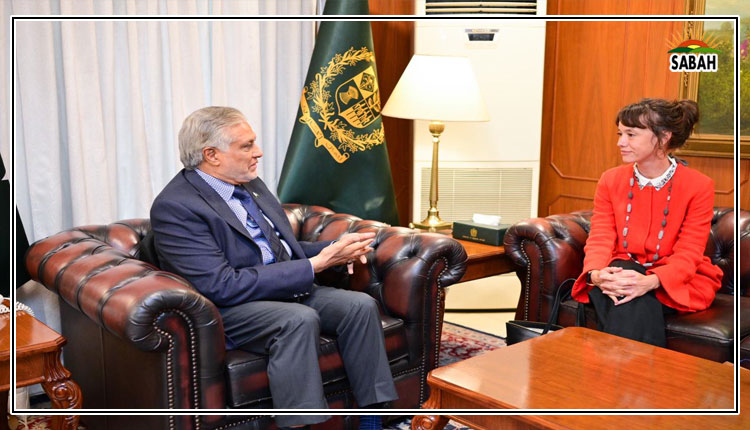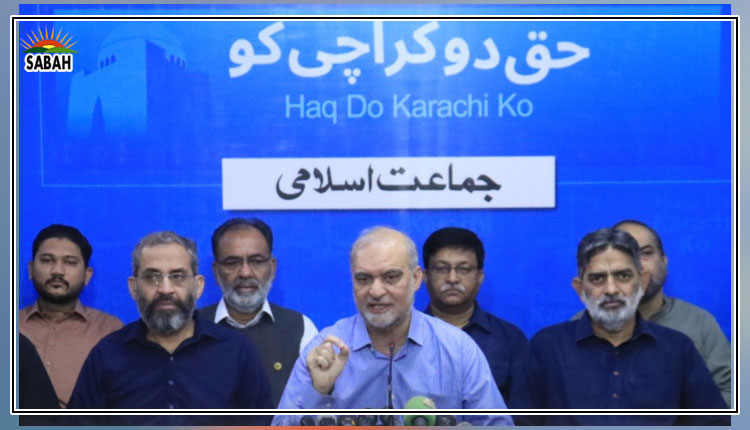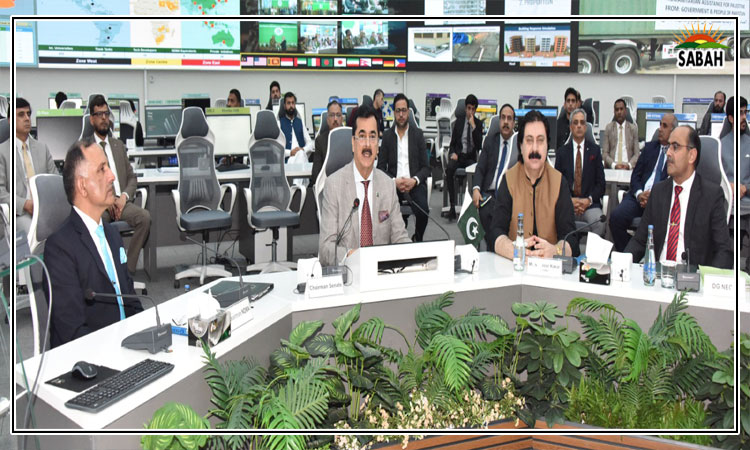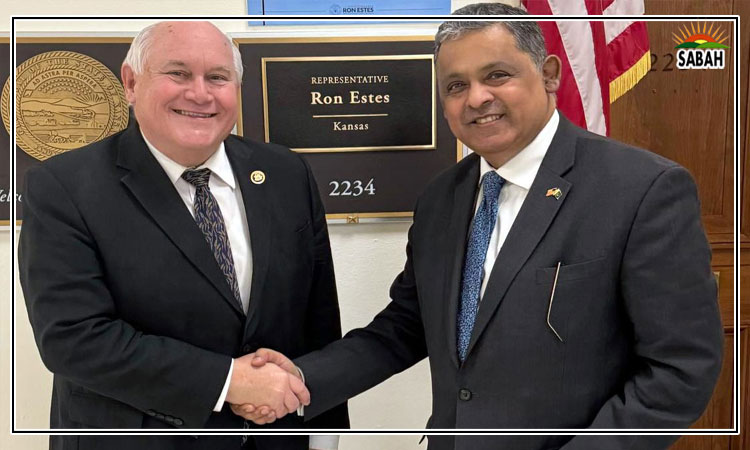The privacy debate… Adeela Naureen
Though considered a basic right, personal privacy cannot be completely protected if it endangers national security. The pillars of the state have a responsibility to strike a balance between personal privacy and national security. Overall, national security is paramount, because it directly affects the continuity and independence of our country. Prioritising national security is essential for a healthy democracy because it safeguards the country’s integrity and independence.
The State has a duty to protect its population against dangers, both internal and foreign (terrorism, espionage, and upholding the law). Monitoring of criminals, terrorists, dissidents, miscreants and others trying to unfairly benefit from their position hence remains essential to detecting and eliminating risks to national security.
In order to highlight how modern states, even leading democracies like the US, use surveillance apparatus to guard National Security, it is appropriate to have a look at the US government’s strategic surveillance programme called PRISM.
As revealed by The Washington Post, The Guardian and other international media outlets since 2013, PRISM is the code name for a programme that the US National Security Agency (NSA) uses to gather internet and telephone communications from various American organisations, private conversations, businesses and even oversees outlets. Based on requests made to internet service providers like Google LLC under Section 702 of the FISA Amendments Act of 2008 to give over any data that match government-approved search keywords, PRISM gathers archived internet and telephone conversations. The NSA may utilise these PRISM requests, among other things, to target communications that were encrypted as they crossed the internet’s backbone, to concentrate on earlier-discarded stored data from telecommunication filtering systems, and to get material that is simpler to manage.
Following the enactment of the Protect America Act during the Bush Administration, PRISM started in 2007. In accordance with the Foreign Intelligence Surveillance Act (FISA), the programme is run under the direction of the US Foreign Intelligence Surveillance Court (FISA Court, or FISC). Six years later, NSA contractor Edward Snowden revealed its existence. He cautioned that the scope of bulk data gathering was much higher than the public was aware of and encompassed what he called “dangerous” and “criminal” actions. Snowden actually stated, “from my desk I could wiretap anyone: you, a Federal Judge or the President of the US.”
Further leaks by The Guardian and The Washington Post in 2013 suggested that PRISM accounted for 91% of the NSA’s internet traffic that was obtained under FISA section 702 authorisations and is “the number one source of raw intelligence used for NSA analytic reports”. The material was disclosed following the discovery that the FISA Court had been directing a Verizon Communications subsidiary to provide the NSA access to call logs for all of its customers.
Cloudward.net published a report in Oct 2021 disclosing how the US government used PRISM in wiretapping. According to a court order, Verizon was required to give the NSA daily access to all call information. This included both calls made within the US and calls made to other nations. The FBI received this order on April 25, 2013 from the covert Foreign Intelligence Surveillance Court. The International Mobile Subscriber Identity (IMSI) number and any other special identifiers must be provided by Verizon in accordance with this order, together with the numbers of both callers and the callees, the call’s duration, the time of the call, and geographical data.
Additionally, Verizon is expressly prohibited by the court order from revealing to the public the existence of the FISA order or this FBI request. The conditions of this order are compliant with the Patriot Act’s “business records” clause. According to a story in The Wall Street Journal, AT&T and Sprint Nextel also received a copy of this court ruling. The NSA receives a record of nearly every call made thanks to this agreement with the nation’s three main phone carriers.
As part of Pakistan’s national security agenda, the present political, economic and stability challenges require quick action, outweighing the importance of privacy concerns (Audio Leaks). Communication monitoring offers vital knowledge to spot risks and stop harm to public safety.
Modern states cannot work in chaos generated in a post-truth environment. Almost all states have passed laws to make sure that dissident groups and people who pose a threat to national security are kept under observation. After the 9/11 attacks, the US passed the USA PATRIOT Act, which increased the scope of government monitoring. In the UK, the Investigatory Powers Act 2016 gave state institutions wide surveillance rights to watch communications in order to tackle terrorist threats. China has increased the extent of citizen surveillance. Face recognition, internet restriction and social crediting are all included. In the Gulf region and Iran, it’s almost impossible to even squeak against the state, especially on National Security issues.
Pakistan’s security services have been given the authority to acquire vital information regarding possible threats to national security because of the specific danger dynamics in our nation. Since politicians and other state officials deal with matters of state and their actions have significant national repercussions, these individuals should be closely watched to ensure that any conduct that is unrelated to matters of national security is promptly brought to light.
Pakistan also requires new surveillance legislation to give security forces the legal resources they need to enhance the country’s security. This legislation should establish a difference between privacy and national security. Any request for privacy that compromises national security should not be accepted on the basis of human or personal liberty rights. Concerned national institutions serve as watchdogs and defend national interests. They can investigate any audio or recorded telephone call that may include evidence of breach of national security to determine the truth of the matter.
In the light of the discourse above, there is a need to review the debate about privacy in our superior courts today. Halting or obstructing a commission, like the one formed on audio leaks, may not be the solution to the problem itself. Any such effort will actually draw questions on legitimacy, transparency and fairness of the superior courts.
Courtesy



